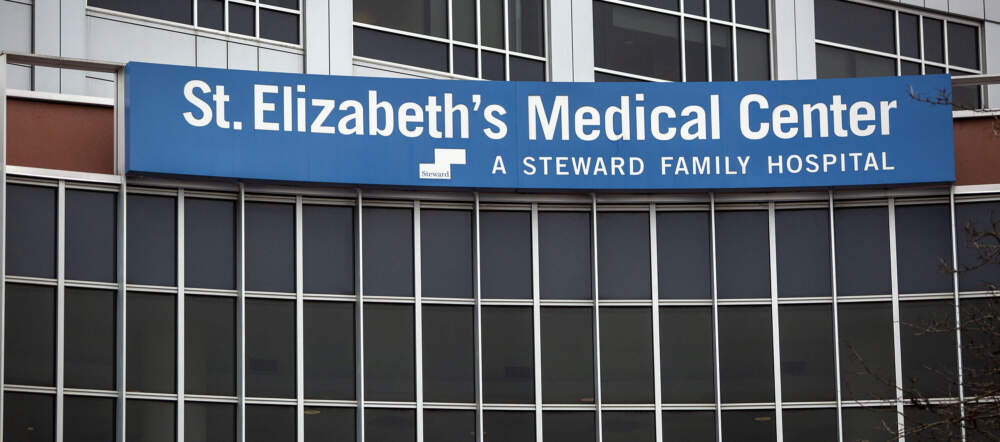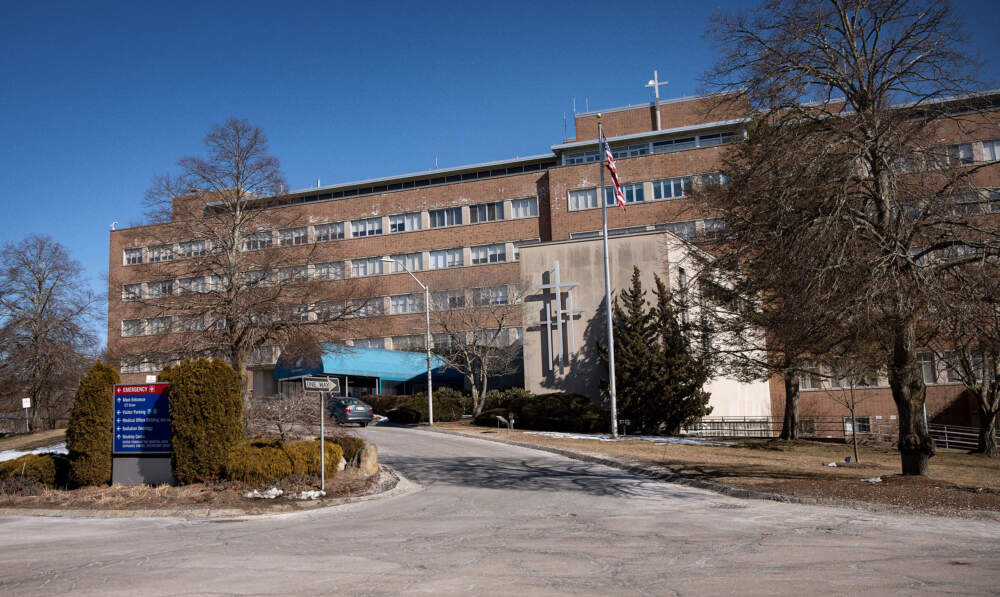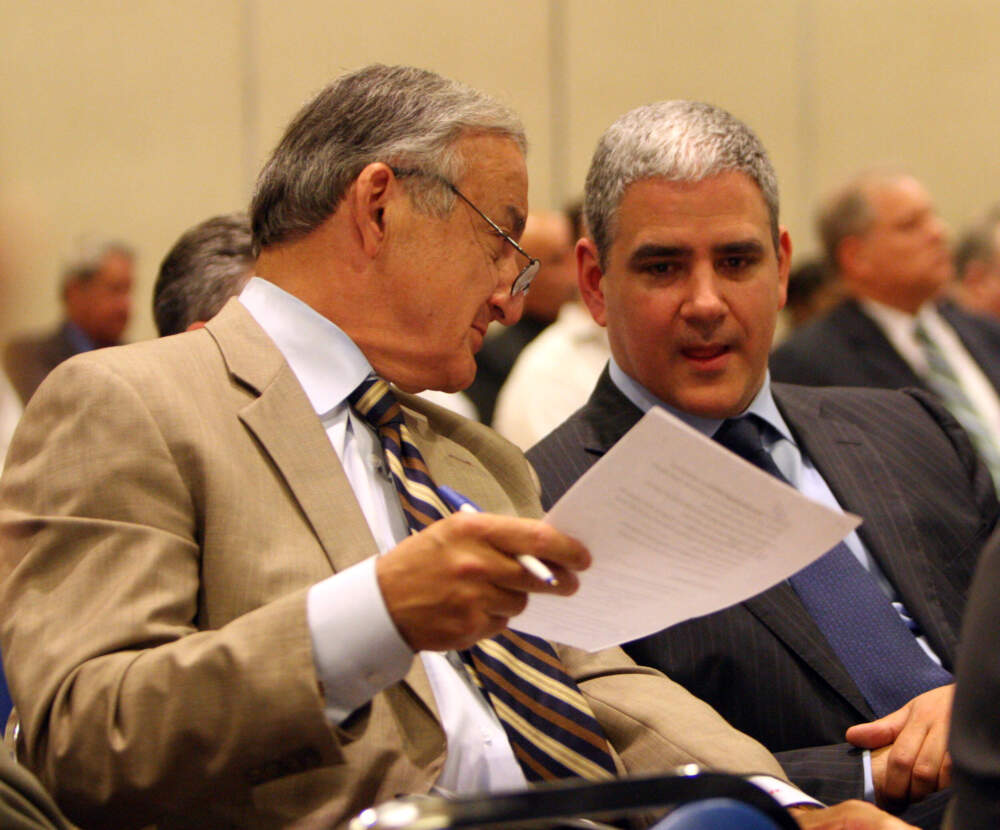Advertisement
In distress, Steward proposes sale of doctors group to Optum

Financially distressed Steward Health Care plans to sell its network of doctors to a division of the for-profit health care giant, UnitedHealth Group, for an undisclosed sum.
The deal is part of Steward's effort to climb out of a financial hole that has shaken the Massachusetts health care industry. Public officials and health care leaders are deeply concerned the company could shutter medical services amid its financial troubles, which would reduce patients' access to care and could destabilize the state's health care system.
Steward revealed its plans in a notice to the Massachusetts Health Policy Commission Tuesday. The company said it has reached an agreement to sell its physician group, Stewardship Health, to OptumCare, which is a sister company of the big insurer, United Healthcare. The deal includes primary care doctors and other providers across nine states, including Massachusetts.
Before any sale can be finalized, the Health Policy Commission will review the transaction’s impacts on health care costs and access. If the watchdog agency opts to conduct an in-depth analysis, the process is likely to take months. The agency can refer its findings to the Attorney General's office and other regulators.
“This is a significant proposed change involving two large medical providers, both in Massachusetts and nationally, with important implications for the delivery and cost of health care across Massachusetts,” David Seltz, executive director of the commission, said in a statement.
“The sale cannot be completed until after the HPC’s review and any concurrent review by state or federal antitrust authorities,” he added.

In their notice, Steward and Optum argued the deal would preserve health care services and jobs. They said Optum would help “recruit and retain high-quality primary care physicians and other providers to eastern Massachusetts,” and offer “enhanced services to current and future patients.”
Although the price was not mentioned in public documents, a deal — if it goes through — could provide a much-needed financial boost to Steward, which operates 33 hospitals across the country. Steward is one of the biggest hospital operators in Massachusetts, serving patients in Boston, Brockton, Haverhill and many other communities. Earlier this year, the company said financial challenges were jeopardizing its ability to continue providing care.
Steward runs nine Massachusetts hospitals — though one, New England Sinai, is slated to close, and another, Norwood Hospital, has been closed since it was damaged by flooding in 2020.
Steward officials have said they’re looking to leave the Massachusetts market — and Gov. Maura Healey has called on them to do so. In their public filing Tuesday, Steward officials said they expected to give notice of additional deals involving their acute-care hospitals in the coming months.
The company did not immediately respond to a request for comment Tuesday.
Optum includes 90,000 doctors nationwide, or roughly 10% of all U.S. physicians. Its parent company is already the subject of a Department of Justice antitrust investigation related to its physician network, according to The Wall Street Journal.
In 2022, Optum acquired Atrius Health, a group of hundreds of Massachusetts doctors.
Steward, meanwhile, has faced increasing scrutiny from officials in Massachusetts, including Healey, and U.S. Senators Ed Markey and Elizabeth Warren, who accuse its executives of profiteering at the expense of vulnerable patients.
Steward was founded with private equity backing in 2010, to take over the former Caritas Christi hospitals in Massachusetts. Under the leadership of chief executive Ralph de la Torre, the company later sold its hospital properties to a real estate investment trust and expanded rapidly across the country.
Steward now owes millions in back rent on its hospital buildings and other loans, according to the real estate company, Medical Properties Trust. Steward announced last month it had obtained a bridge loan and would seek to sell its physician network as part of a plan to stabilize its finances.

Warren said a potential deal between Steward and Optum raises antitrust concerns, as Optum is already the largest employer of physicians in the country.
“My top priority is ensuring Steward’s Massachusetts hospitals remain open,” Warren said in a statement Tuesday. “But Steward executives have no credibility, and I am concerned that this sale will not benefit patients or health care workers, or guarantee the survival of these facilities. It would be a terrible mistake for Steward to be allowed to walk away while looting Massachusetts hospitals one more time.”
Markey said Optum must demonstrate that it can protect health care access in Massachusetts by controlling costs and “putting patients and providers first.”
Steward’s financial problems have stoked anxiety across the Massachusetts health care sector, as leaders of other hospitals worry about the ripple effects of Steward facilities potentially closing or changing ownership.
Steve Walsh, president of the Massachusetts Health & Hospital Association — a trade group in which Steward is not a member — said any deal involving Steward’s doctors should help stabilize the state’s health care system, not harm it.
“We believe a transaction of this magnitude must be subject to a stringent and transparent approval process,” Walsh said in a statement.
Most major health care providers in Massachusetts are structured as nonprofits, but Steward and Optum are both for-profit companies. Steward is privately owned, while Optum is part of UnitedHealth Group, which is publicly traded on the New York Stock Exchange.
John McDonough, a professor at the Harvard T.H. Chan School of Public Health who is critical of for-profit companies in health care, said the deal represents "an inflection point" for Massachusetts. He sees it as a moment when state officials could reject the for-profit model, or accept the growth of Optum's for-profit doctors network in the state.
"It's a continuation of growing concentration within the physician community, under one corporation's control, one for-profit out of state corporation that has an especially aggressive approach to expansion to raising prices," McDonough said.
While state regulators could seek to place conditions on the deal, McDonough said it's unclear how they might leverage any funds from the sale to bolster Steward facilities. That's something state officials should consider, said Stuart Altman, a professor of health policy at Brandeis University.
"The question is: What happens to the money?" Altman said. "Will Steward take the money from the purchase and help out those hospitals? Or will it use it to pay back the real estate company and the senior owners?"
WBUR's Deborah Becker provided additional reporting for this story.
This article was originally published on March 27, 2024.
